Coda Read online
Page 5
“Brad texted me while I was in the room. He had a heart from that poor guy in Ojai. The one who jogs and hates spicy food apparently. So I didn’t have to go through with it.”
He took my hand again and rubbed each finger as if considering their ability to do harm. “God saved you.”
“You believe in God? You believe he’d step in and save me? And he’d kill someone to do it?”
“God was in Brad’s text. I believe that. But swear to me, I mean, I don’t think that circumstance will recur, but swear to me you won’t ever consider something like that again.”
“I won’t let you die if I can prevent it. I don’t feel right about it, and I won’t pretend I do, but it’s like how a soldier must feel when he kills the enemy. I’m sure it doesn’t feel good, but there wasn’t a choice. And if it comes to me not having a choice again, I’ll do it again.”
I searched his face for distaste or foul rancor, and I found none. Then I looked for disquiet or emotional blankness, and I found none of that either. I couldn’t read him, even when he took my arms and pulled me forward onto him. I rested my head on his chest.
“I have to tell you,” he said, “I’m scared of death. But you? You put death to shame.”
“Do you still love me?”
“Yes.”
“Are you going to leave me?”
“No.”
“Do you forgive me?”
He took a long time to answer. I told myself it didn’t matter, that his forgiveness was beside the point when I had his love.
“I fear you. I am in awe of you. I can’t forgive you for something you didn’t do.”
I’d thought I was committed to him before. I’d thought I’d given him my whole heart and that I owned him completely. But I hadn’t. Maybe I’d spend the rest of his life realizing I’d never owned him, loved him, or committed to him fully. Maybe it was a matter of the changing acoustics of an ever-expanding heart.
I kissed his scar, and he stroked my hair. I worked down his body and took his cock in my mouth. I wanted to eat him alive, swallow his forgiveness, absorb his compassion. I wanted to become him, to own his pain and kindness, his sadism and his maturity, holding it to myself in a drum-tight skin of gratitude.
chapter 9.
MONICA
I usually had a dream. I was in Sequoia, but it wasn’t Sequoia. The hallways were narrower, the lights dimmer or blindingly bright—endlessly white and long. Doors everywhere, some locked and some ajar. In my right hand beat a throbbing, pulsing heart, dropping blood on the bleached linoleum. I only had as much time as the blood in the heart, and I needed to get to Jonathan’s room with it or he would die. Sometimes the hospital was empty, and I couldn’t find the room. Sometimes it was populated with people who didn’t know what the hell I was talking about or where I should go. Once, I dreamed the halls were lined with chicken coops, and Dr. Brad sent me in the wrong direction on purpose.
Jonathan always died. I always woke up in a state of grief and misery, and he was either next to me or I was in an empty bed, looking for a way to call him without worrying him.
The night after he reclaimed me in the studio, with every inch of my body stinging and alive, I expected to have that same dream, as surprising and terrifying as it always was. But it didn’t come. And not the night after, when he made me wait twelve minutes before touching me. Nor over the next week as he broke me, pushed me, hurt me until I was a puddle of emotional satisfaction. I never had that dream again, as if my subconscious was suddenly okay with the whole arrangement of my life and my conscious brain was the only troublemaker.
He hurt me, but he didn’t bind me. When I asked him to, he spanked me for questioning him, but he still didn’t tie me up.
I mistrusted this in quiet moments, but I let it go. He was too good, the same man he had been. Still wise and kind, still generous and funny, but with an added helping of scorching cruelty in bed. He’d scared the dreams away, and I was safe at night, but in the day, I still carried my anxieties. Even when I forgot to worry, I reminded myself that I hated grey and pale pink, that copper and blood had the same smell, and that the heart machine in the hospital made the same beep as the timer in the coffee shop. My brain did its due diligence, creating panic as insurance against death.
Jonathan had been more productive. Six weeks after he returned from the hospital, he started forgetting his anti-rejection meds because of the complexities of dosing, and his immune system started slipping because he wasn’t getting enough nutrients. Shortly after Valentine’s Day, he found out I’d been staying home to watch him. He’d sliced the air with his hand and said simply, “No.”
He hired help.
Laurelin was a nurse, which I normally wouldn’t hold against her. But I wasn’t behaving normally. She came to the house to interview in the afternoon, after a long line of women and men who’d spoken to Jonathan about what he expected, what he needed, and what they could do. They’d all smelled sanitized. I couldn’t sit in the interviews, because the hospital stink caused me so much anxiety I wanted to throw up. I told Jonathan I had to practice, but I peeked in on every interview, and every time he said one of them was no good, I felt relieved.
But Laurelin didn’t smell like a hospital. Nothing about her reminded me of Sequoia. Her hair was the color of scrambled eggs, and her belly was rounded with the beginnings of her second trimester. She’d worked in the infectious diseases unit at Hollywood Methodist but couldn’t continue while pregnant. She smiled a lot, which they all did, but she seemed to be made of sunshine and she smelled of rosewater. When I met her, I felt as if a blanket had been thrown over me on a cold night, and I couldn’t imagine she would let anything happen to my husband.
“Her,” I’d said. “You need to hire her.”
“Really? Why is that?”
“She’s pregnant. She’s going to take good care of you. I can feel it.”
“What does taking care of me feel like?”
“It feels like the only right and good thing. And she smells nice. And you like her, I can tell,” I said.
“I think she might be bossy.”
“I’ll take that as a yes.”
So she was hired, and she’d been the bulwark against my needling that she was supposed to be. I could travel and work without worrying, and without Jonathan worrying that I was worrying. Maybe it had been a bad idea. Maybe Laurelin had made our need to communicate less urgent.
Four months after she’d been hired, and two weeks after Jonathan reclaimed me, Laurelin shuffled in wearing jeans and a sweatshirt even in the late June warmth. Her code for the front gate worked three mornings a week.
Jonathan had left his little blue book on the counter for her. It was pliable leather with ruled cream pages and a black ribbon marker. In it, he kept notes about his diet, his exercise, and if he was late or early taking his rejection meds.
“Hi, Laurelin! How are you feeling?” I asked.
“Not bad.” She pulled Jonathan’s blue book and box of meds toward her. “I’ve skipped just about every complication I could.” She put on a glitter face, swinging her blond ponytail from one side to the other, then popped open the box of pills that had a day of the week and a time of day in each compartment.
“How much longer?”
“Seven weeks,” she said, brows knotted about what she saw in Jonathan’s little pill box. “What’s this?”
“What’s what?” I didn’t look at her, just the teapot as I filled it.
She looked at her watch. “It’s ten, and he hasn’t taken his morning treatment.”
I didn’t say anything.
“Monica?”
“Yeah?”
“Where is he?” She flipped to the last page of the book.
“He’s on a run.”
She snapped the book closed. “Well, we’re going to have to have a little talk, the three of us.”
I felt chastened. I shouldn’t have. She worked for Jonathan, and thus, she worked for me, and it wasn�
��t as if I were the one who had missed a handful of pills. That had been my husband, wanting one more tumble before his run, then breakfast, then his cubicle of meds.
Laurelin hummed and pulled the blender to her. She had packets of vitamin powders and access to the fridge, so she set up his Shit Shake for that day and the two following.
I felt as if I’d been let off the hook. I hadn’t been able to resist him that morning. He wanted a tumble. No pain, no scene, no demands, just a one-two-three bite of vanilla cake. Delicious. Not something I wanted every day, but a good interlude between the usual screaming, bruising games we played. I must have been smiling, because when I looked up, Laurelin was staring at me and smirking.
“I know you’re still newlyweds—”
I slapped my hands over my ears. “La la la! Stop it, Laurelin!”
She ripped open a packet of powder and dumped it in the blender. “You can get on with it after he takes his meds.”
“You know how responsible he is,” I said.
“Generally.”
“Can you not give him a hard time? I’ll take care of it from now on.”
She poured milk in the blender and shook it, peeking in the top. “You’re away too often to keep that promise.”
She was right. But I knew when I was away, he was perfect. When I was around, he let things slip.
“Well, consider me chastened. I’m going to lunch. You can berate my husband when he gets back.” I kissed her on the cheek and ran out.
***
I spotted Darren halfway down the block from Terra Café. He looked taller by a few inches, possibly because Adam, who walked beside him, was only five eight. Darren keened a little to the left, bumping his boyfriend affectionately, and Adam nudged Darren with his elbow.
“You’re late,” I said.
“Oh, Miss Hotshot’s on a schedule.” Darren gave me jazz hands while Adam kissed my cheek.
“The line in this place is nuts. So this five minutes counts.” I wagged my finger at him as if I meant it, which I didn’t. Not even a little. I couldn’t have cared less if he was late.
“Did you finish the EP?” Darren asked.
“Yesterday. It was great. I mean, all of it. Every track I feel good about.”
“How many?”
“Six.”
“Nice.” He looked at the menu. Organic fair trade lunch, gourmet cakes and pies, vegan, free-range, grass-fed, gluten-free, cruelty-free, flavor-challenged, and the descriptions of what wasn’t added, wasn’t done, or wasn’t offered took up half the board.
“You look different,” Adam said, looking me up and down. He’d really grown on me with his sharp mouth and cutting sense of humor. If you could take a joke, he was the guy to hang around, and if you beat him to the punch, even better. Thin-skinned weeping willows need not apply.
“I’m the same.”
“Just richer,” Adam snapped. Darren elbowed him, and Adam laughed.
I shrugged. “There’s that. But you’re still buying your own lunch.”
“But no,” Adam continued, “seriously, something’s changed since the last time I saw you.”
Darren cut in. “The last time you saw her, she was in a hospital cafeteria. She hadn’t eaten in weeks. It was a fucking nightmare.”
They’d come to visit a few days after Jonathan had his transplant. I barely remembered it. No, I did remember it. It was Christmas. Darren had brought me a piece of holiday cake, and I’d eaten it down to the last scrapings of frosting. The cake I remembered, the conversation, which probably centered around physical damage and medical procedures, was lost.
We sat at a cramped spot by the window and put our number on the table. I’d seen Darren a lot since the hospital. He was the only one I’d told about the horrors of Sequoia. The recurrent dreams. The heart-gripping fear whenever I heard a machine beep or saw an innocuous color combination. I told him about how I went miles out of my way to avoid the hospital compound and turned off any TV show with scenes in a medical facility. I even refused to use white sheets in the house because the sheets in the hospital were white.
He’d been there for me in the middle of the night when the door alarm beeped and I freaked out because it sounded like a heart monitor. He gave me directions when I got lost in West Hollywood because I couldn’t find a way to get where I was going without passing Sequoia. He’d heard about all the dreams of endless hospital hallways while Jonathan died in a room I couldn’t find.
“When is Jonathan going back to work?” Adam asked. He traded real estate insurance products, so anything that happened in real estate was hugely interesting to him. I always had to make sure to only tell him things that had been announced publicly.
“He’s selling most everything,” I said.
“Really?” He considered his iced green tea latte. “He need more money?”
“Shut up.” I flicked a few drops of condensation from my cup at him.
“Sorry.”
“I mean, who wants to run an empire on borrowed time?” I said. “At this point, it’s either sell it all or go back to working like a dog. And that’s all you’re getting out of me, Mister Corporate Raider.”
Adam rolled his eyes. “You going to tell her?” he asked Darren, biting the straw of his emerald-color latte.
“Tell me what?”
Darren pressed his fingers into his eyes as if he still had sleep in them.
“You are an unbelievable chickenshit,” Adam mumbled.
“Fuck off.”
“Okay.” I held up my hands. “Listen, this is cute, but if you guys haven’t talked about this already, I’d be happy to step outside while you—”
“Easy, it’s not a big deal,” Darren said.
“Really?” Adam seemed put off.
“I’m moving out of Echo Park.”
“You’re moving in together!” I squealed joyfully. “That’s awesome!”
“Yes, but that’s not it. We did something impulsive, and we’re just sticking with it before some asshole makes it illegal again,” Darren said.
I heard something about assholes at the end, but not really, because I’d scraped my chair back to run around the table. I plopped right in Darren’s lap and hugged him. Adam got in on the action until we were a pile of happy limbs.
“Just say it so I know I’m not hugging you for buying a pot farm,” I said.
“We got married!” Adam said.
Three tables of people twisted around to look at us then broke into applause. I stood and clapped too, and Adam pushed his lips onto Darren’s cheek. My ex-boyfriend blushed. I sat when the applause died and our food arrived.
“So,” I said, “why now? Or then? Or when?”
“Yesterday,” Darren answered. “The deal was, when I had a foothold as a musician—”
Adam interrupted between taps on his phone. “And I was not holding my breath—”
“Oh, fuck you.”
“It’s got nothing to do with your talent, and you know that, honey.”
“Whatever. That was the deal. I’ve been working at Redlight Studios pretty regularly, and Harry and I have been working on some really broad, commercial stuff.”
“Yeah,” I said. “I know all this. Why are you stalling?”
“I don’t want you to compare this to what you get, because you, I mean you’re getting a different kind of deal.”
“Oh. My. God. You got signed.”
“It’s nothing,” he said. “It’s music for a video game. City of Dis, if you’ve heard of it.”
“I have.”
“Well, it’s a good gig and good money. And I didn’t even mention it because who cares? But it just got us noticed enough that we’re getting signed by Beowolf Records for a really small thing—”
Adam dropped his phone on the table. “And this is why I said, ‘Marry me now, or I’m done with you.’ Nothing is a big enough deal for him. He’d accept my proposal after his fifth Grammy, maybe.”
“Are you guys having a part
y or something? I want to give gifts and get drunk. You owe me that.”
“When we get a place not in the slums of Los Angeles, so sorry,” Adam said. “Something nice on the west side with a big enough yard for a reception.”
The look on Darren’s face told me there had been some contention over either the size or the location, but I said nothing. I’d get it out of him later.
My phone rang.
“Let me get this.” I slid the phone off the table and walked outside.
Jonathan and I had made a new deal after he reclaimed me. If he called, any time, any place, I picked up. If he called during a show, I had to pick up in front of the audience. The only way to avoid that was to tell him when I would be on stage and when I would be in the studio, then he’d only call if it was an emergency.
“Hello, goddess,” he said.
“Hi.” I felt warm and giddy.
“I think we should cancel on Sheila tomorrow.”
“Why?”
“I noticed you were walking straight. Can’t have that.”
As appealing as the thought of him making it hard for me to walk was, he needed to be at Sheila’s tomorrow. “We can work around it.”
“Since when are you so eager to see my family?”
The rule of never lying to save each other pain was still in effect. I couldn’t travel thinking he wanted me gone, and he couldn’t chase me out to save me from being around him. We were to be direct in our insecurities and our desires, even if they would hurt.
“I want to go,” I said, telling the truth but keeping a tiny lie to myself. “I happen to love almost all of your sisters as much as Margie.”
“Truth?”
“Truth.”
“Come home.”
“May I finish lunch?”
“Hurry. I want to fuck you blind.”
Fluid rushed between my legs. I almost buckled at the knees. We hung up, and I dialed Margie while leaning against a parking meter.
“Yes?” she snapped.
“He’s trying to wiggle out of tomorrow.”
“You have one job, Monica. One job.”
“I can do my best, but—”
“For the tenth time, he is not going to have a heart attack when we yell ‘surprise.’ You’re going to give yourself an ulcer,” she said.

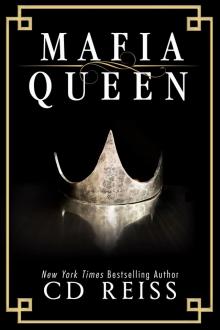 Mafia Queen: The DiLustro Arrangement #3
Mafia Queen: The DiLustro Arrangement #3 Mafia Bride: The DiLustro Arrangement #1
Mafia Bride: The DiLustro Arrangement #1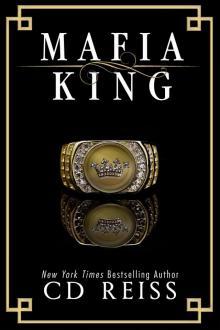 Mafia King
Mafia King Mafia Bride
Mafia Bride Sacred Sins
Sacred Sins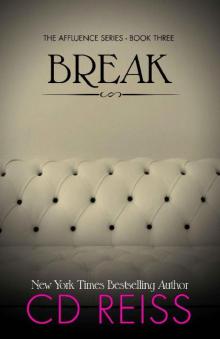 Break
Break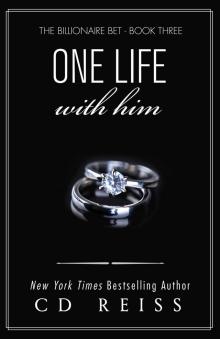 One Life With Him
One Life With Him Pretty Scars
Pretty Scars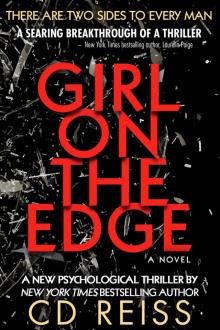 Girl On the Edge
Girl On the Edge Secret Sins: (A Standalone)
Secret Sins: (A Standalone)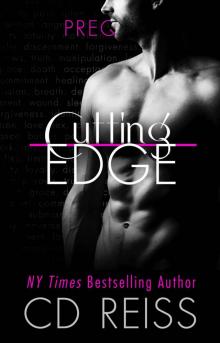 Cutting Edge_The Edge_Prequel
Cutting Edge_The Edge_Prequel Prince Roman
Prince Roman Hardball: (A Kinky Sexy Dirty Standalone)
Hardball: (A Kinky Sexy Dirty Standalone)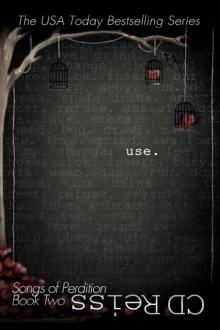 Use
Use Marriage Games (The Games Duet #1)
Marriage Games (The Games Duet #1)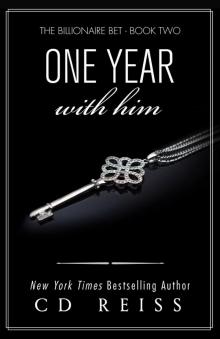 One Year With Him
One Year With Him Sing
Sing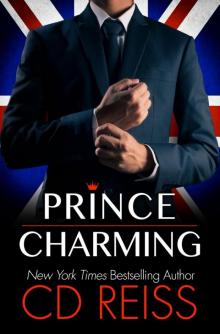 Prince Charming
Prince Charming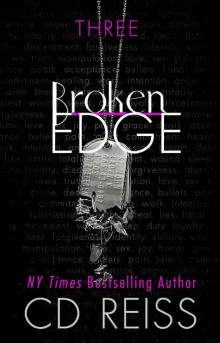 Broken Edge: (The Edge #3)
Broken Edge: (The Edge #3)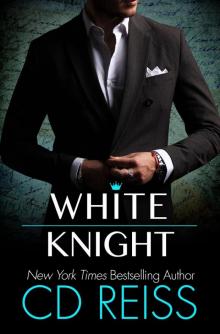 White Knight
White Knight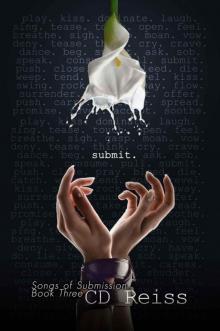 Submit (Songs of Submission)
Submit (Songs of Submission) Jessica and Sharon
Jessica and Sharon Monica
Monica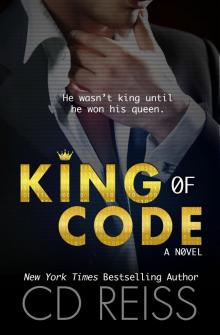 King of Code
King of Code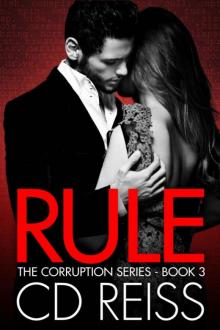 Rule
Rule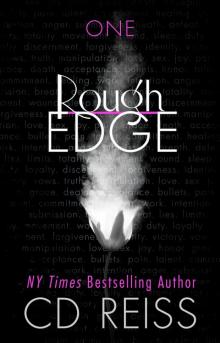 Rough Edge: The Edge - Book One
Rough Edge: The Edge - Book One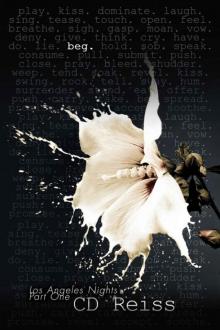 Beg (Los Angeles Nights)
Beg (Los Angeles Nights)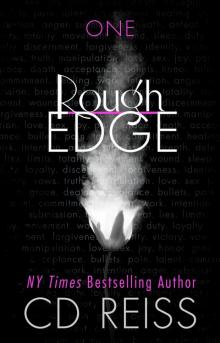 Rough Edge
Rough Edge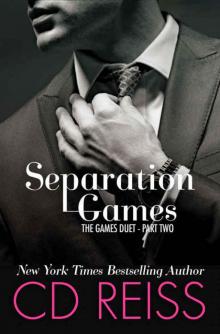 Separation Games (The Games Duet Book 2)
Separation Games (The Games Duet Book 2) Forbidden: A Standalone
Forbidden: A Standalone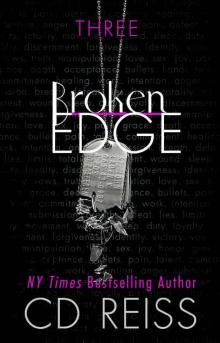 Broken Edge
Broken Edge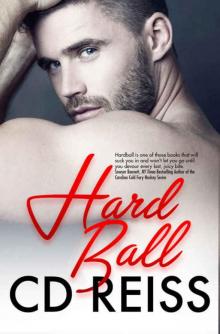 Hardball
Hardball Coda
Coda Complete Submission: (The Submission Series, Books 1-8)
Complete Submission: (The Submission Series, Books 1-8) Shuttergirl
Shuttergirl